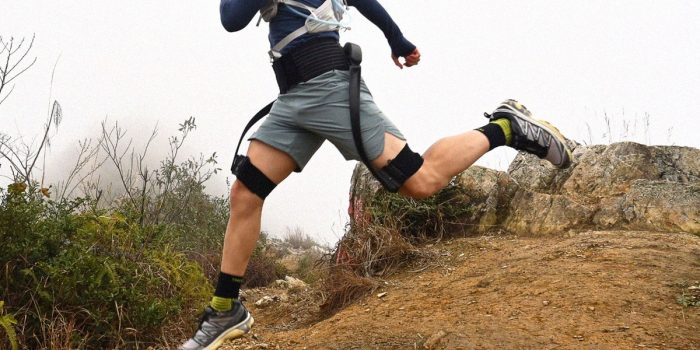Exoskeletons have been a subject of interest and development for many years, with the potential to enhance human strength, mobility, and endurance. These wearable robotic devices have been explored in various fields, including military, medical, and industrial applications.
Recently, a Shanghai-based startup, Hypershell, launched a Kickstarter campaign for an AI-powered exoskeleton designed to reduce the load on the wearer’s back while hiking or running.

The device, which weighs just 4.4 pounds, attaches around the hips and thighs and features 14 sensors that offset up to 66 pounds off the wearer’s back during hill or stair climbs while increasing the wearer’s walking or running speed with the equivalent of a single horsepower.
The concept has resonated with backers, with the company raising over $1 million from more than 2,200 prospective exoskeleton wearers at the time of writing. However, there are concerns about whether the device works as advertised.
The language used to describe the device’s abilities is quite vague, and it remains to be seen whether the device can deliver on its promises of a 50 percent torque increase and quadrupled motion acceleration capability.

Additionally, there are concerns that the device could do more harm than good by causing unusual stress on other body parts.
John Paul Rodriguez, MD at Texas Orthopedics, warns that “offloading your skeleton and compromising your musculature to protect the legs does not seem to make sense.” This could increase the risk of low back pain or other related issues.

While the device is relatively cheap compared to similar solutions, costing just $600 (with early backers only having to pay half of that), waiting for more extensive reviews before considering backing the project is recommended.
While the concept is intriguing, there are concerns about whether the device works as advertised and whether it could cause unintended harm to the wearer. Again, this highlights the importance of caution and research when considering new technology, especially crowdfunding.


